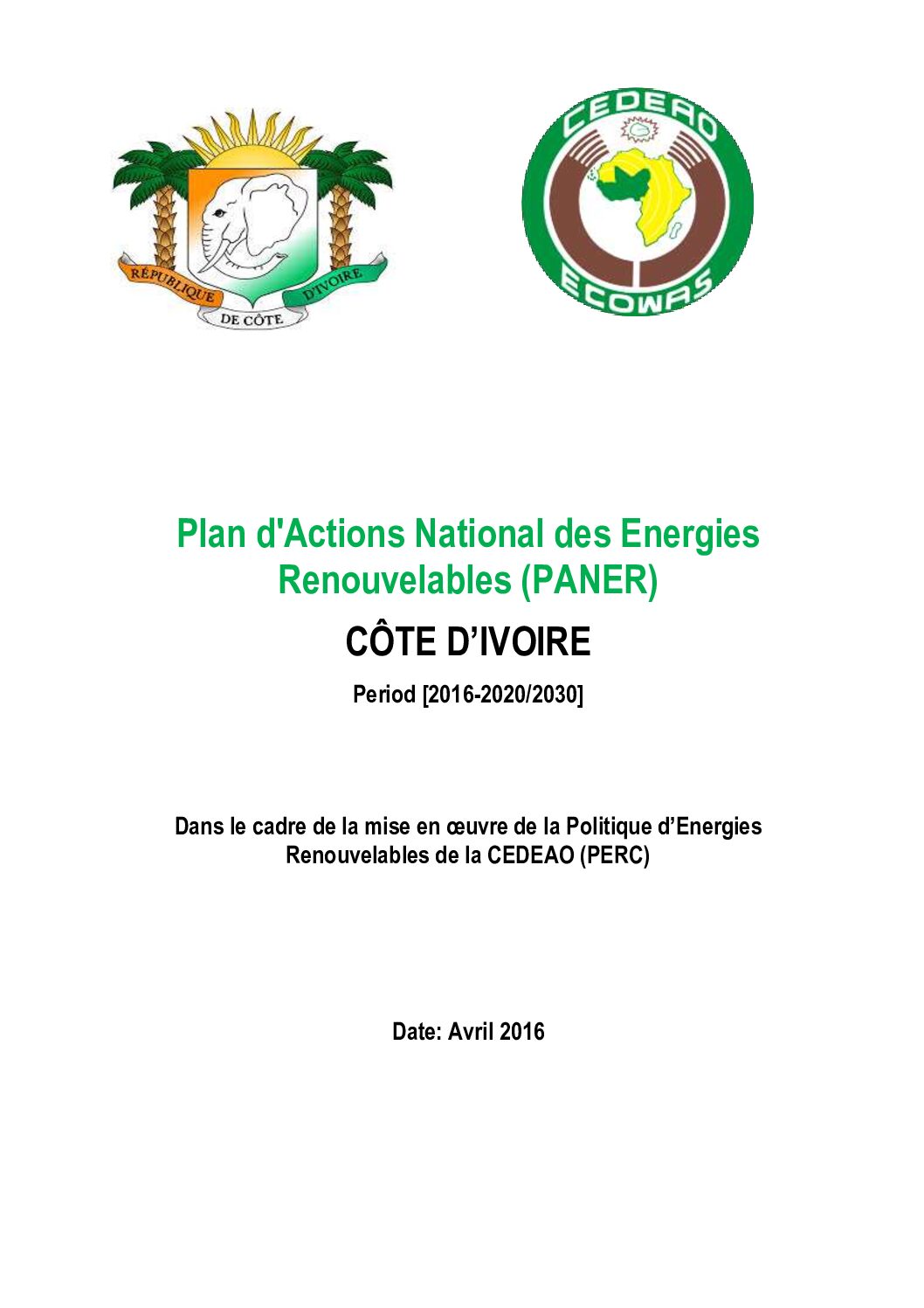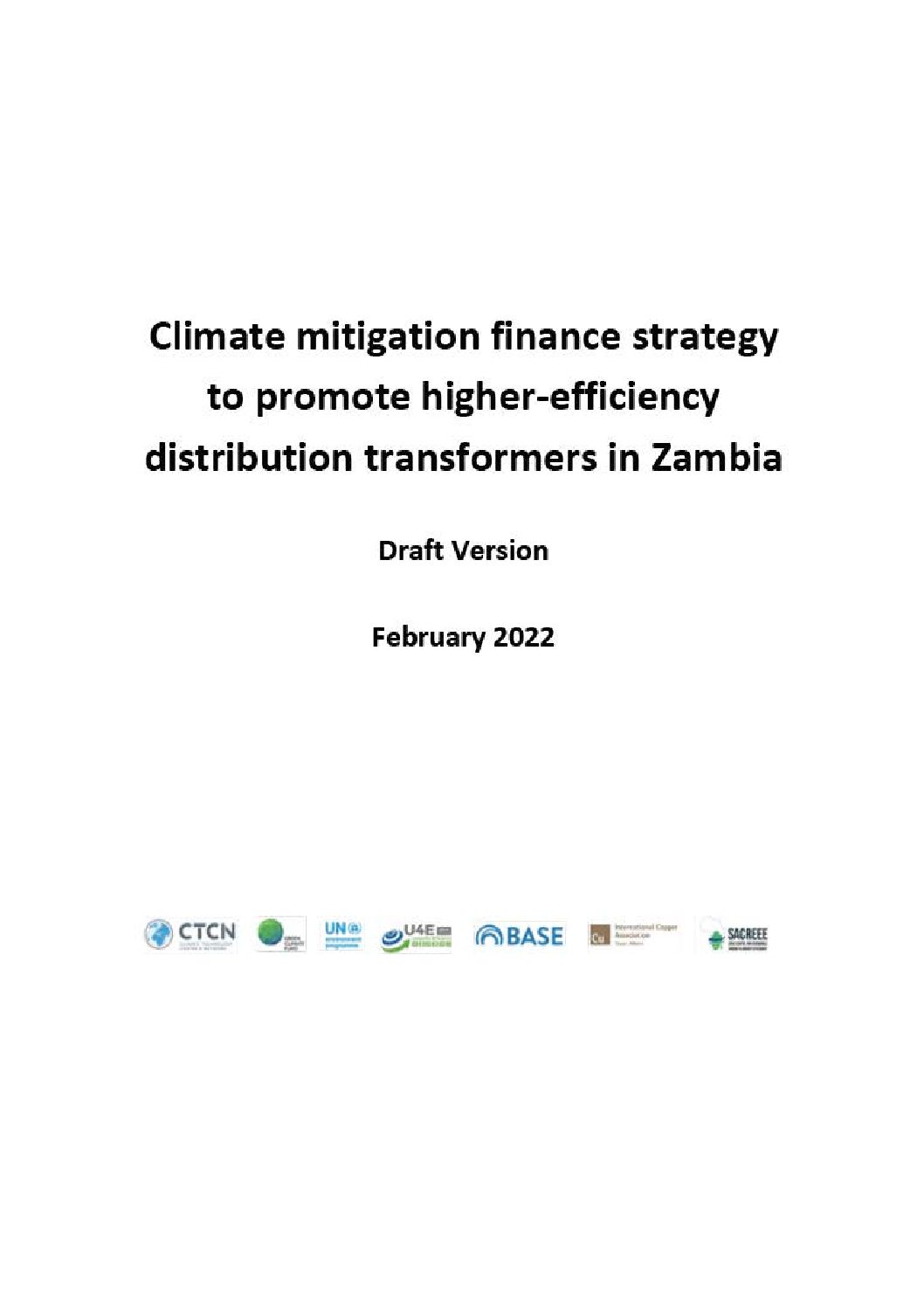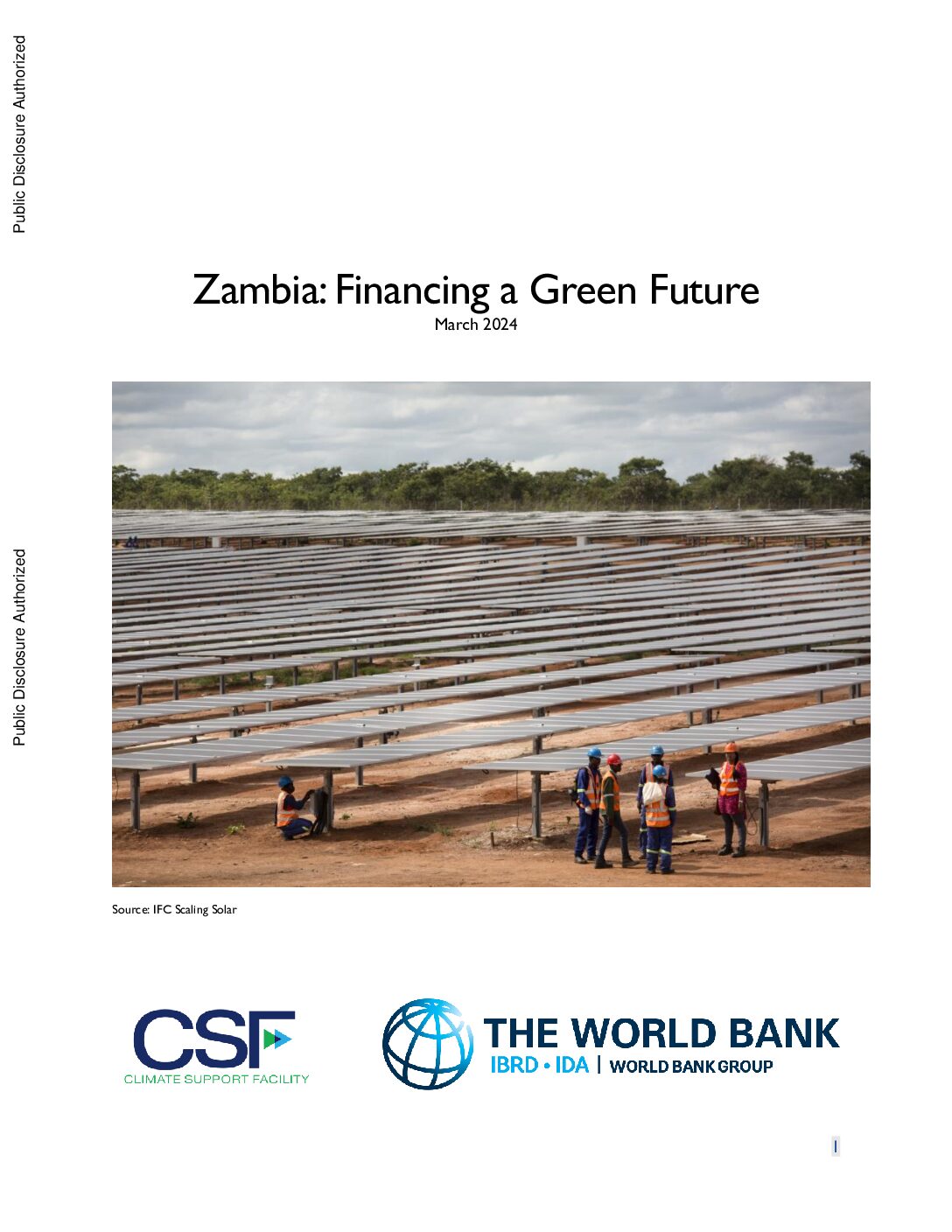This action plan, developed with support from ECREEE, lays out the bioenergy strategy of Côte d’Ivoire for 2021-2030. It includes an extensive background and context section, as well as strategic priorities and measures to promote these.
This action plan, developed with support from ECREEE, lays out the renewable energy strategy of Côte d’Ivoire for 2016-2020/2030. It includes information on strategic priorities and measures to promote these.
This action plan, developed with support from SEforALL and ECREEE, lays out the energy access strategy of Côte d’Ivoire for 2016-2020/2030. It includes extensive background and context as well as information on strategic priorities and measures to promote these.
This website contains a range of learning resources on Integrated Resource Planning (a methodology for least-cost planning by public utilities), including load forecasting, tariff policies, amd demand side management. It also includes exercises and case studies.
Climate mitigation finance strategy to promote higher-efficiency distribution transformers in Zambia
This report investigates efforts to enhance investment in efficient distribution transformers in Zambia, and provides recommendations to enhance the effectiveness of these efforts
This report considers the challenges faced by developers implementing renewable energy projects in the SADC region, analyzes existing prefeasibility or early-stage project preparation funds in the region and globally to assess if they effectively support project developers, and provides recommendations on how to improve and scale up these facilities.
This report identifies and analyses key risks and barriers to private-sector investment in interconnected mini-grids in Nigeria, and evaluates policy and financial instruments designed to address them.
This report discusses potential social and environmental risks associated with the roll-out of the GETFiT renewable energy investment programme in Zambia, as well as mitigation measures.
This note aims to provide a high-level analysis of the preconditions for stimulating green investments with a focus on financial sector supervisory framework needed to address climate risks (physical and transition), current landscape of green finance in Zambia, and the demand-side opportunities for green investments in key sectors.
Sustainable Energy Transitions in Uganda: Influential Determinants of the Renewable Energy Landscape
This article provides an overview of the renewable energy landscape of Uganda, discussing the interplay between policy, technology, financing and societal awareness. It provides recommendations to advance the energy transition.






